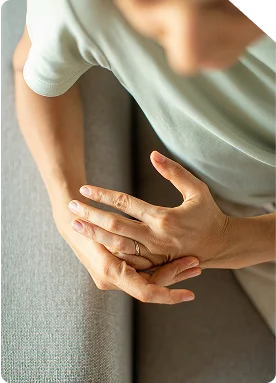Outpatient Rehab Program for Addiction in New Hampshire
Addiction recovery doesn’t have to put your life on hold. At Live Free Recovery, our outpatient program gives you expert care and real support while you keep up with work, school, or your family. We help you take control of your future without stepping away from your responsibilities.


Outpatient Substance Abuse Treatment
Live Free Recovery’s outpatient program is designed to fit into your life, not disrupt it. Our expert team in New Hampshire provides structured treatment programs to help you build a strong foundation for recovery. Whether you’re moving forward after inpatient rehab or starting treatment for the first time, our outpatient program lets you heal while still keeping up with daily life.
In individual therapy, you’ll have a safe space to talk openly with a counselor. You can discuss challenges, set recovery goals, and get support from someone who understands what you’re going through. Group therapy connects you with others on the same journey, offering encouragement, accountability, and a sense of belonging. We’re here to help you manage cravings, avoid relapse, and create healthier habits so you can move forward with confidence.
Outpatient vs. Inpatient
Outpatient rehab is a great choice if you need addiction treatment but don’t require 24/7 care. It allows you to stay connected to work, school, and family while still receiving professional support. This makes it ideal for those seeking flexibility without sacrificing the guidance and tools needed for recovery.
At Live Free Recovery, our outpatient programs include cognitive-behavioral therapy, teaching you to change negative thought patterns and build healthier coping skills. Family counseling also helps strengthen relationships and create a strong support system at home. If you’re unsure which level of care is right for you, our team will guide you toward the best fit.
Is the Outpatient Program a Good Fit for Me?
Outpatient rehab is a great option if you need professional support but don’t require 24/7 supervision. It works well for individuals who:
- Have a stable home environment
- Are motivated to recover but need guidance
- Want to balance treatment with work, school, or family
- Have completed inpatient rehab and need continued support
For those needing more structure and support, we offer partial hospitalization (PHP) with daily therapy and intensive outpatient care (IOP) for multiple therapy sessions a week. Our team will assess your needs and recommend the best level of care for your recovery.
Our Approach to Outpatient Addiction Treatment
Everyone’s recovery is different. That’s why Live Free Recovery tailors your treatment plan to fit your unique lifestyle. If you’re looking for relapse prevention tools, therapy, or life skills training, we provide outpatient care that works with your daily routine, not against it.
Outpatient rehab helps you build coping skills while staying connected to your responsibilities. Some people come to us after inpatient treatment, while others start their recovery here. No matter where you’re beginning, we focus on managing cravings, easing withdrawal symptoms, and teaching healthy ways to handle life’s challenges.


The Benefits of Outpatient Therapy
Outpatient rehab helps you recover while still living your life. With the right support, tools, and strategies, you’ll have everything you need to move forward with confidence.
- Flexible Scheduling: Get substance use disorder treatment while still working, studying, or caring for family.
- Relapse Prevention: Learn coping mechanisms and healthy skills to manage your cravings and stay sober.
- Smooth Transition: Outpatient care helps you adjust to everyday life after completing inpatient rehab.
- Access to Therapy: Individual, group, and family therapy sessions help address your emotional and mental health.
- Support for Mental Health: Treat addiction and any co-occurring disorders at the same time.
Get Well-Rounded Outpatient Treatment at Live Free Recovery
Recovery is a journey, and the right support makes all the difference. At Live Free Recovery, we offer outpatient treatment that fits your life while helping you stay on track. We’ll help you find a program that supports your recovery while allowing you to live your life.
We accept Medicaid and most private insurance plans to make treatment more accessible. Our team is here to guide you, answer questions, and create a plan that works for you. If you’re ready to take the next step, reach out today.
